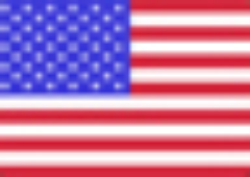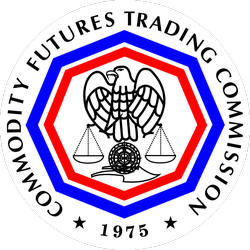
Regulator
Commodity Futures Trading Commission (CFTC)

http://www.cftc.gov/
Commodity Futures Trading Commission (Main Office)
Three Lafayette Centre
1155 21st Street, NW
Washington, DC 20581
Phone nbr : 202-418-5000 (Contact)
HISTORY OF THE CFTC
Futures contracts for agricultural commodities have been traded in the United States for more than 150 years and have been under Federal regulation since the 1920s. When the CFTC was created in 1974 with the enactment of the Commodity Futures Trading Commission Act, most futures trading took place in the agricultural sector. Over the years, the futures industry has become increasingly varied and complex.
Significant dates in the history of futures regulation before the creation of the CFTC and significant dates in CFTC history from 1974 to the present are given here :
Futures Regulation Before the Creation of the CFTC
CFTC History in the 1970s
CFTC History in the 1980s
CFTC History in the 1990s
CFTC History in the 2000s
CFTC History in the 2010s
MISSION & RESPONSIBILITIES
The mission of the Commodity Futures Trading Commission (CFTC) is to foster open, transparent, competitive, and financially sound markets, to avoid systemic risk, and to protect the market users and their funds, consumers, and the public from fraud, manipulation, and abusive practices related to derivatives and other products that are subject to the Commodity Exchange Act.
In carrying out this mission and to promote market integrity, the Commission polices the derivatives markets for various abuses and works to ensure the protection of customer funds. Further, the agency seeks to lower the risk of the futures and swaps markets to the economy and the public.
To fulfill these roles, the Commission oversees designated contract markets, swap execution facilities, derivatives clearing organizations, swap data repositories, swap dealers, futures commission merchants, commodity pool operators and other intermediaries.
The CFTC’s predecessors in the Department of Agriculture date back to the 1920s, but the Commission was formally created as an independent agency in 1974. The Commission historically has been charged by the Commodity Exchange Act (CEA) with regulatory authority over the commodity futures markets. These markets have existed since the 1860s, beginning with agricultural commodities, such as wheat, corn and cotton.
Over time, the markets regulated by the Commission have grown to include contracts on energy and metals commodities, such as crude oil, heating oil, gasoline, copper, gold and silver, and contracts on financial products, such as interest rates, stock indexes and foreign currency.
In the aftermath of the 2008 financial crisis – caused in part by the unregulated swaps market – President Obama and Congress charged the CFTC with reforming this market. The agency now also has regulatory oversight of the over $400 trillion swaps market, which is about a dozen times the size of the futures market.
The futures and swaps markets are essential to our economy and the way that businesses and investors manage risk. Farmers, ranchers, producers, commercial companies, municipalities, pension funds and others use these markets to lock in a price or a rate and focus on what they do best – innovating, producing goods and services for the economy, and creating jobs. The CFTC works to ensure these hedgers and other market participants can use these markets with confidence.
COMMODITY EXCHANGE ACT
Access the Commodity Exchange Act on the Cornell University Law School Website
Commodity Exchange Act-U.S. Code Conversion Chart
The CEA section numbers do not always correspond directly to the sections in the U.S. Code where the CEA is codified. As a research tool, we provide a conversion chart that lists the sections of the CEA and the corresponding sections in the U.S. Code. Section 3 of the CEA, for example, is codified at 7 USC 5. This chart has no legal force and is not intended to substitute for review of the statutes to which it refers.
Commodity Futures Modernization Act of 2000 (PDF)
(Appendix E of P.L.106-554, 114 Stat. 2763) Title XIII of the Food, Conservation, and Energy Act of 2008, PL 110-246, 122 Stat. 2189, which made amendments to the CEA, and the Conference Report
CFTC REGULATIONS
CFTC regulations are found at Title 17 Chapter I of the Code of Federal Regulations (CFR).
Prior to promulgation and inclusion in the CFR, CFTC proposed and final regulations are published in the Federal Register.
CFTC Unified Agenda of Regulatory and Deregulatory Actions - Semiannual Unified Agenda of Regulatory and Deregulatory Actions from Reginfo.gov
CFTC ORGANIZATION
The CFTC organization consists of the Commissioners, the offices of the Chairman, and the agency's operating units.
The Commission consists of five Commissioners appointed by the President, with the advice and consent of the Senate, to serve staggered five-year terms. The President designates one of the Commissioners to serve as Chairman. No more than three Commissioners at any one time may be from the same political party.
DIVISIONS
Clearing and Risk (DCR)
The Division of Clearing and Risk oversees derivatives clearing organizations (DCOs) and other market participants in the clearing process, including futures commission merchants, swap dealers, major swap participants and large traders. It monitors the clearing of futures, options on futures, and swaps by DCOs, assesses DCO compliance with Commission regulations, and conducts risk assessment and surveillance. DCR also makes recommendations on DCO applications and eligibility, rule submissions, and which types of swaps should be cleared.
Enforcement (DOE)
The Division of Enforcement investigates and prosecutes alleged violations of the Commodity Exchange Act and Commission regulations. Potential violations include fraud, manipulation and other abuses concerning commodity derivatives and swaps that threaten market integrity, market participants and the general public.
Market Oversight (DMO)
The Division of Market Oversight fosters derivatives markets that accurately reflect the forces of supply and demand and are free of disruptive activity. It oversees trade execution facilities and data repositories, conducts surveillance, reviews new exchange applications and examines existing exchanges to ensure compliance with applicable core principles. DMO also evaluates new products to ensure they are not susceptible to manipulation as well as rule filings by exchanges to ensure compliance with core principles.
Swap Dealer and Intermediary Oversight (DSIO)
The Division of Swap Dealer and Intermediary Oversight oversees the registration and compliance of intermediaries and futures industry self-regulatory organizations (SROs), including U.S. derivatives exchanges and the National Futures Association (NFA). Under Dodd-Frank, DSIO also will be responsible for developing and monitoring compliance with regulations addressing registration, business conduct standards, capital adequacy, and margin requirements for swap dealers and major swap participants.
OFFICES
Chief Economist (OCE)
The Office of the Chief Economist provides economic support and advice to the Commission, conducts research on policy issues facing the Commission, and educates and trains Commission staff. The OCE plays an integral role in the implementation of new financial market regulations by providing economic expertise and cost-benefit considerations underlying those regulations.
Data and Technology (ODT)
The Office of Data and Technology provides technology and data management support for Commission market and financial oversight, surveillance, enforcement, legal support, and public transparency activities. ODT also provides general network, communication, storage, computing, and information management infrastructure and services.
Executive Director (OED)
The Executive Director ensures the Commission’s adaptation to the ever-changing markets it is charged with regulating, directs the allocation of CFTC resources, develops and implements management and administrative policy, and ensures program performance is measured and tracked Commission-wide. The OED also oversees the Commission’s Whistleblower and Consumer Affairs programs, and the Office of Diversity and Inclusion.
General Counsel (OGC)
The Office of General Counsel provides legal services and support to the Commission and all of its programs. These services include: representing the Commission in appellate, bankruptcy and other litigation; assisting in the performance of adjudicatory functions; providing legal advice and support for Commission programs; drafting and assisting in preparation of Commission regulations; interpreting the CEA; and advising on legislative, regulatory, and operational issues.
Inspector General (OIG)
The Office of the Inspector General is an independent organizational unit at the CFTC. Its mission is to detect waste, fraud, and abuse and to promote integrity, economy, efficiency, and effectiveness in the CFTC’s programs and operations. As such it has the ability to review all of the Commission’s programs, activities, and records. In accordance with the Inspector General Act of 1978, the OIG issues semiannual reports detailing its activities, findings, and recommendations.
International Affairs (OIA)
The Office of International Affairs advises the Commission regarding international regulatory initiatives; provides guidance regarding international issues raised in Commission matters; represents the Commission in international organizations, such as the International Organization of Securities Commissions (IOSCO); coordinates Commission policy as it relates to international initiatives of the G20, Financial Stability Board and the US Treasury Department; and provides technical assistance to foreign market authorities.
Legislative Affairs (OLA)
The Office of Legislative Affairs is the Commission’s liaison with Congress. OLA coordinates the provision of reports, briefings and informational materials to Congressional offices and the testimony of agency officials before Congressional Committees. The office monitors legislative activities that affect the work of the Commission. It also manages the Commission’s response to inquiries on behalf of constituents and other communications from the legislative branch.
Public Affairs (OPA)
The Office of Public Affairs is the Commission’s liaison with the general public and news media. OPA issues press releases and media alerts, and maintains the Commission’s website and social media presence.
CFTC COMMITTEES
The CFTC's Advisory Committees were created to provide input and make recommendations to the Commission on a variety of regulatory and market issues that affect the integrity and competitiveness of U.S. markets. The committees facilitate communication between the Commission and U.S. futures markets, trading firms, market participants, and end users. The committees, governed by the provisions of the Federal Advisory Committee Act, currently include:
Agricultural Advisory Committee
Energy and Environmental Markets Advisory Committee
Global Markets Advisory Committee
Market Risk Advisory Committee
Technology Advisory Committee
CFTC-SEC Joint Advisory Committee

comments are disabled for this article